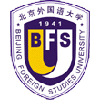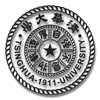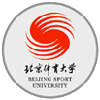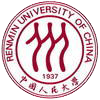University of International Business and Economics
|
| Profile |
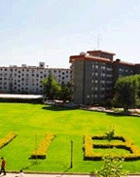 The University of International Business and Economics (UIBE)
was founded in 1951 under its original name, the Beijing Institute
of Foreign Trade. In 1960, it was designated as a key university
by the government for its outstanding programs. In May 1997, UIBE
was put on the list of "Project 211" universities, a
governmental program aimed at developing about 100 Chinese universities
into exceptionally high quality academic institutions in the new
century.
The University of International Business and Economics (UIBE)
was founded in 1951 under its original name, the Beijing Institute
of Foreign Trade. In 1960, it was designated as a key university
by the government for its outstanding programs. In May 1997, UIBE
was put on the list of "Project 211" universities, a
governmental program aimed at developing about 100 Chinese universities
into exceptionally high quality academic institutions in the new
century.
UIBE was under the administration of the Chinese Ministry of Foreign Trade and Economic Cooperation (now known as the Ministry of Commerce) until 1999. Then, in 2000, UIBE became one of the state universities to fall under the leadership of the Ministry of Education, and in June of the same year merged with the China Institute of Finance. UIBE is recognized as one of China's leading universities in the studies of business and finance.

UIBE was one of the first universities in China to have initiated
academic exchanges with foreign academic institutions. Currently
UIBE has exchange programs with over 60 universities and institutes
in more than 20 countries or regions, including the United States,
Canada, Britain, Germany, France, Finland, Japan, Korea, Australia,
New Zealand, and Russia.

UIBE has become renowned for the quality education it has provided to thousands of foreign students in past years. Each semester, around 950 international students join UIBE's degree or non-degree programs. Armed with extensive international business knowledge, expertise in Chinese business and culture, and Chinese language competency, many of these students are now working with government agencies and a broad range of institutions and enterprises to promote trade, investment and cultural exchanges between China and their home countries.
At present, UIBE has a total enrollment of more than 21,000 students coming from 30 provinces, autonomous regions and municipalities in China as well as from over 30 countries and regions around the world.
| Programs |
UIBE consists of the following Schools: International Trade and Economics; Finance; International Business Management; International Studies; Foreign Languages; Law; the School of Sino-German Studies; Continuing Education; Humanities and Public Administration Management; Information Management; International Education; Department of Insurance, and the Department of Graduate Studies.
Among the over 30 bachelor, master and doctoral programs that UIBE offers, International Trade, International Economic Law, English Language and International Business Management have been designated as key programs under "Project 211."
UIBE's School of International Education (SIE) is responsible for international students and scholars enrolled in degree and non-degree study programs. In addition, SIE offers language training programs, including Chinese Language and Business Chinese, and advanced studies in Chinese business and culture.
UIBE offers semester and year-long Mandarin Chinese programs. Each semester lasts about 16 weeks, with about 3.5 hours of classes per day, Monday to Friday.
| Teachers |
Recognized in China as one of the leading universities in teaching
business and finance, UIBE prides itself in having valuable resources
and excellent relations with local and foreign governments, corporations,
and business communities as a whole. Well-informed about current
business affairs and policies, the university's teachers are keen
to pass their knowledge on to students.
Every year, the university invites dozens of foreign academic professionals to
teach or lecture in UIBE, in addition to the 1,600 teaching and administrative
staff members who carry out the school's regular curricula.
The School of International Education (SIE), responsible for the
Chinese Language and Chinese Business training programs, has over
100 full- and part-time faculty and staff members. Of this number,
90 are responsible for teaching students, with staff including
professors, associate professors, scholars and lecturers.
Teachers at SIE are highly qualified, devoted and experienced in
teaching international students. All hold bachelors, master's
and/or doctoral degrees in Business, Economics, Law, International
Trade, Finance, Chinese Literature and the likes from reputable
local or foreign universities. They also hold the certificate
for Teaching Chinese as a Second Language, as issued by the Chinese
Ministry of Education. This team is extremely knowledgeable about
and well-connected with the business community both locally and
abroad, as quite a number of the staff have been to foreign countries
to teach Chinese language and business, participate in research,
or take part in academic exchange.
| Campus Facilities |
Library
The UIBE Library was established at the same time as the university's founding in 1954, but the original building was replaced by the present library in 1987. With its four floors covering a floor space of 6,000 square meters, the UIBE Library has a collection of over 700,000 books, periodicals, and audio-visual and other materials in ten foreign languages, covering topics related to domestic and international business, law, economics, Chinese language and many other disciplines. There are also over 940 different types of magazines and newspapers, of which 750 are Chinese and 140 are international materials.
The library offers a reference section, lending section, graduate hall, undergraduate hall, domestic and international magazine and newspaper hall, and many reading rooms. There is also an audio-visual section containing over 2,000 reference materials, such as microfiche, CDs, audio cassettes, and other media for students' use.
Recreation Facilities
The university has basketball courts, volleyball courts, football fields, tennis courts, badminton courts and a running track.
Laundry
Every international students' dormitory has a coin-operated washing machine. Dry cleaning services are located nearby the school campus.
Money & Banking
There is a bank inside the university with a 24-hour ATM. There are also other banks located near the campus which provides all kinds of financial services for clients.
Medical Care
There are no medical clinics on campus. However, students may use the medical care provided by International SOS (ISOS). ISOS is the world's leading provider of medical assistance and comprehensive medical services for the whole family, including dentistry, counseling, physiotherapy, occupational therapy, nutrition and TCM (traditional Chinese medicine).
The ISOS clinic provides a 24-hour emergency ambulance service, and members have access to around-the-clock telephone consultations and evacuations from anywhere in China. Highly-trained expatriate and overseas-trained Chinese GPs provide services in English, Chinese, French, Spanish and many other languages. A well-stocked pharmacy provides Western medication and TCM ingredients.
ISOS
Address: Building C, BITIC Jing Yi Building, No. 5 Sanlitun Xiwu
Road, Chaoyang District,
Beijing
Clinic appointments: (8610) 6462-9112
Dental appointments: (8610) 6462-0333
Food & Groceries
Inside UIBE, there is a dining hall for Chinese and foreign students, which offers a large range of Chinese food. Near the university, there is a good selection of restaurants and cafes. A grocery store is available on campus, selling food, drinks, fruit, and many other essential items.
Postal Services
A post office is located nearby the university, within 10-15 minutes waking distance, where students can send all kinds of mail and parcels.
| Accommodation |
UIBE campus accommodation offers a choice of standard dorms or
student flats. For both types of accommodation, students can choose
between single or double occupancy. Coin-operated washing machines
are available for students use. Telephone and internet usage are
available and costs are to be paid by the individual.
The standard dorm (Huibin dorm) is a six-story building providing 198 standard
rooms. The first and second floors house offices and classrooms, while the four
upper floors are designed as a dormitory to accommodate international students
on campus. Within the dorm building, there is a business service office, recreation
hall, exercise room, cafe, and laundry facilities.
All standard dorms are equipped with two beds, desks, chairs, a telephone, television,
air conditioning and private bath with 24-hour hot water. There are also shared
kitchens on each floor.
Student flats are located in the Huicai apartment building, which was completed in September 2002. Each studio flat has a sitting room, bedroom, kitchen, balcony and private bathroom with 24-hour hot water. Fully furnished, the studio flats each have two beds, a dining table, desks, chairs, TV, telephone, and air conditioning.
| Location |
UIBE is located in Haidian District, in the northeastern part of Beijing. Covering an area of 33 hectares, with a floor space of about 265,000 square meters, the campus is conveniently located with easy access to all areas of the city. UIBE is ten km from Tiananmen Square (city center), nine km from Beijing Railway Station, 22 km from Beijing West Railway Station, 25 km from Beijing International Airport, and eight km from the foreign embassy district.
Many well-known organizations are located near the university, including China Daily, the Sino-Japanese Friendship Hospital, Chinese Medical University, Asian Games Village, and the Lufthansa Center. In addition, there are also many shops, supermarkets and hundreds of restaurants within the campus vicinity.
Distance from the airport: 40 minutes by taxi.
Distance from the train station: 20 minutes by taxi.

